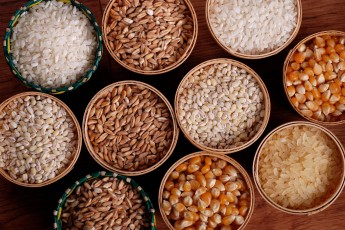By Mark Lange, PhD The Glycemic Index (GI) is a way to evaluate the effects of carbohydrate-containing foods on your blood glucose level. Carbohydrates with…
There have been a number of studies and ratings comparing the types of diet programs available. One study, the results of which were released in…
by: Theresa Greenwell, International Science Whole grains, also called cereal grains, are the seeds of grasses that are used for food. These include wheat, oat,…
by Theresa Greenwell, International Science Stress has long been associated with changes in health, overeating, eating greater amounts of sweets/sugary foods and weight gain. Stress…
Over the past 30 years, consumption of sugar-sweetened beverages such as sweetened sodas, fruit drinks, sports drinks, and energy drinks, has been on a steady…
It’s a known fact that your diet and lifestyle choices can impact your life in a number of ways. Poor food selections and less than…
Mark Lange, PhD According to Euromonitor International, reformulating about one-fifth of carbonated drinks to contain less sugar, by using stevia, could reduce caloric intake between…
Who would have thought that coffee would help reduce the risk of Type 2 diabetes? Well, apparently it can. A couple of recent studies released…
While recommendations from the U.S. Centers for Disease Control and Prevention state the average adult man should take in 56 grams of protein a day,…
There’s a reason why people say breakfast is the most important meal of the day. Research shows that those who eat breakfast every day are…










